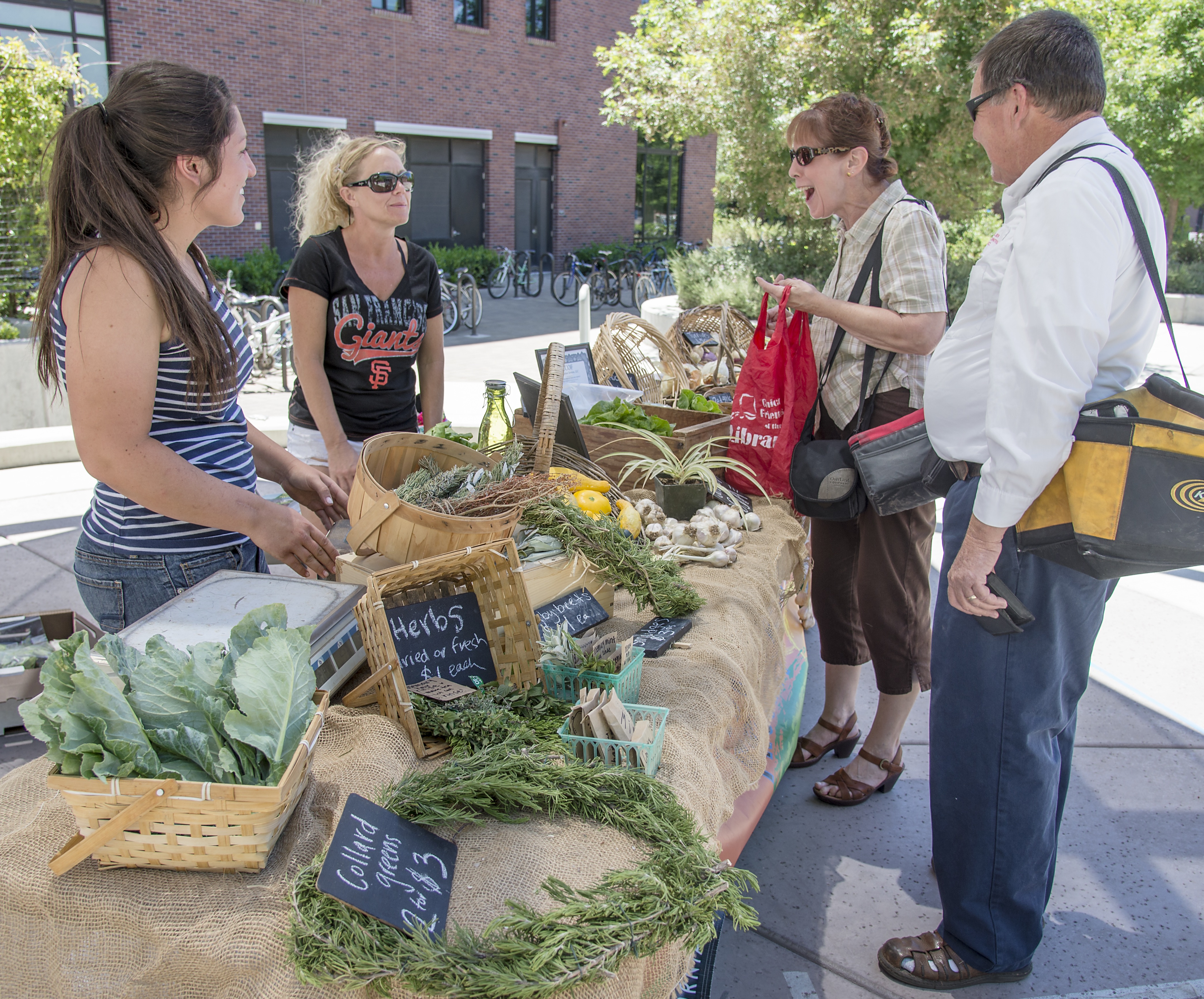Sustainable Eats: A Recipe for Success

Elisabeth Quick and Kim Tracy assist Paula Woods and Charles Barnes, (left to right) at the Organic Vegetable Project (OVP) weekly markets, which includes squash, tomatoes, lettuce mix, and herbs, across from the library near the Student Services building Wednesday, June 18, 2014 in Chico, Calif. (Jason Halley/University Photographer)
By Kacey Gardner, Editorial Assistant
When student Grace Kerfoot became the AS Sustainability student dining coordinator last fall, she was immediately off and running on bringing more dining choices to Chico State.

A nutrition and food science major, Kerfoot was actively involved in events like Food Day and organizations like the national student group Real Food Challenge that celebrate and advocate for foods that are healthy, local, and green.
She had also already signed, along with many others, the “Real Food for CSUs” petition calling for the CSU system to set policy regarding sustainable food spending. But she knew that, in her new position, she could do more.
“Chico State is a small school with a unique food service operation and a drive for sustainability,” Kerfoot said. “This combination, linked with the fact that we live in California and are surrounded by some of the best produce year-round, is a recipe for success.”
Kerfoot forged ahead, tracking the success of current initiatives; promoting the local, organic, and fair-trade food products already being sold at campus convenience stores, cafes, and Sutter Dining; networking with sustainable vendors; and providing educational resources to the campus community on better food choices.
The myriad efforts by Kerfoot and AS Dining administrators throughout the past year resulted in a Best Practice Award in Sustainable Food Service this spring, around the same time the CSU Board of Trustees approved a long-awaited sustainable food policy that will govern the more than $100 million spent on food across the 23-campus system. Under the new policy, each campus will have until 2020 to ensure that at least 20 percent of all food spending goes to farms and food businesses that meet Real Food Challenge guidelines.
At Chico State, this will mean formally committing to the Real Food Challenge Commitment and figuring out exactly how far the University is from that 20 percent mark. AS Dining is already using the Real Food Calculator to track how much of its food is “real” and is well on its way toward the goal, said Eli Goodsell, who coordinates AS Sustainability efforts overall.

“We’re not at 20 percent, but we are doing a good job,” he says. “Our administrators in AS Dining are extremely committed to this process. We would have gotten there anyway.”
Examples of AS Dining’s current offerings that meet the Real Food criteria include the Marketplace Café’s weekly Local Lunch; organic beverages such as GT Kombucha and Guayaki tea; local, fair trade coffee; and veggies from the Organic Vegetable Project.
“Food is one of the largest overarching sustainability themes because everybody uses it, every day,” Goodsell said. “Eating local, organic, fair trade food is always better for our bodies, but it’s also better from an environmental and economic perspective.”
Kerfoot added, “At Chico State, people are making goals and seeing them through. For a long time, food was not really on the radar with sustainability, and now it’s taking center stage.”


